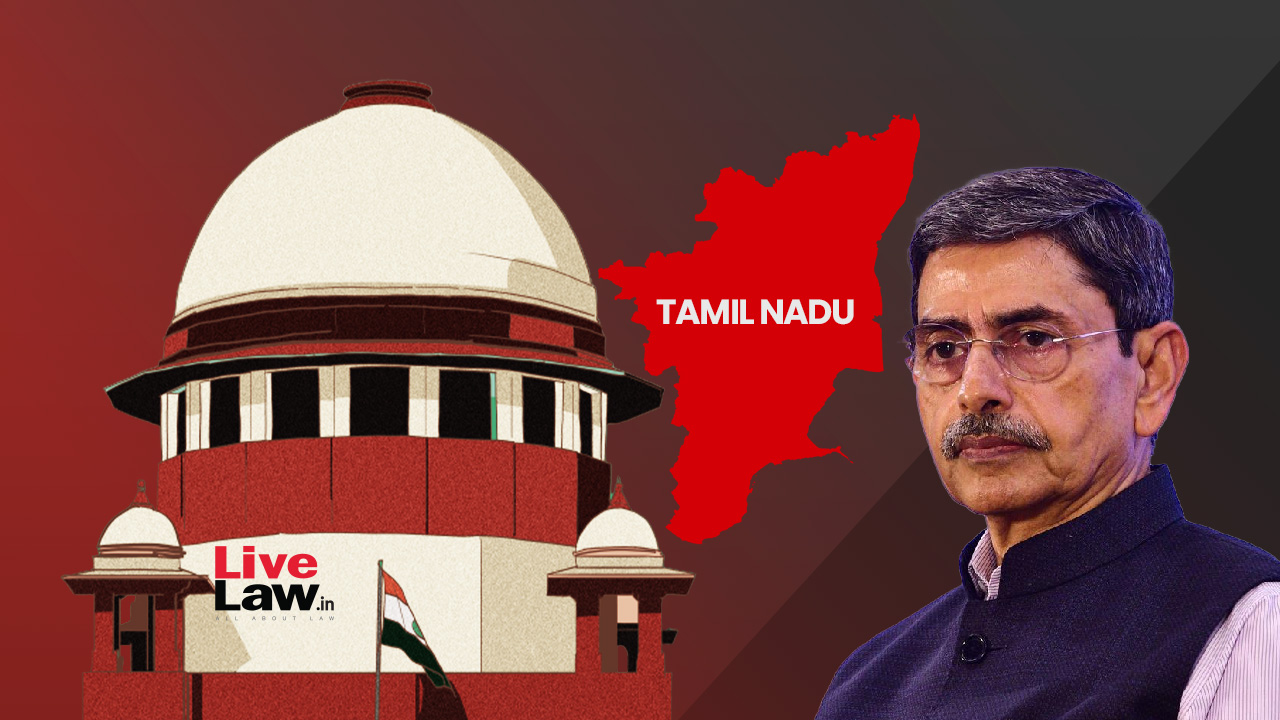 |
|
The Supreme Court of India recently reserved its judgment on a significant constitutional challenge brought forth by the Tamil Nadu government against Governor R.N. Ravi. The core issue revolves around the Governor's actions concerning twelve bills passed by the state legislature, some dating back to January 2020. The Governor's withholding of assent, and subsequent forwarding of re-passed bills to the President for reconsideration, has raised complex questions about the interpretation of Article 200 of the Indian Constitution and the balance of power between the state and central governments. The four-day hearing presented a detailed examination of the Governor's powers and the legal implications of his actions. The petitioners, the Tamil Nadu government, argued that the Governor's prolonged inaction and eventual referral to the President were violations of established procedure and the spirit of Article 200, which outlines the Governor's role in dealing with state legislative bills.
Central to the dispute is the interpretation of Article 200 and the Governor's permissible actions. The petitioners contend that the Governor has three options: assent, withhold assent (requiring the bill's return to the legislature for reconsideration), and reserve the bill for Presidential assent. They highlighted a previous Punjab case, arguing that the Governor's actions contravened the established precedent. Conversely, the Attorney General for India argued that the Governor possesses four options: assent, withhold assent, reserve for Presidential assent, and return the bill to the legislature without necessarily recommending reconsideration. This discrepancy in the understanding of the Governor's options formed a significant part of the court's deliberations. The court also grappled with the factual question of whether the Governor formally returned the bills to the assembly or simply communicated his decision to withhold assent, highlighting a potential procedural irregularity.
A key element of the debate concerned the Governor's right to refer re-passed bills to the President. The petitioners argued that the option to reserve a bill for Presidential assent should be exercised initially; only if this option is not used can it be sent to the President subsequently. They further argued that this is a crucial point within the context of established procedures and Article 200's provisions. This point brought forth several legal arguments, with varying interpretations presented from both sides concerning the limits of the Governor's powers. The Attorney General countered that the Governor retained the discretion to refer bills to the President, even after re-enactment, if he deemed them repugnant to central laws. This raised questions about the Governor's role as a guardian of federalism, but the precise parameters of this role needed further clarification from the court.
The historical context of Article 200 was explored through a review of the Government of India Act, 1935, and the Constituent Assembly debates. The petitioners highlighted the removal of the word 'discretion' from the draft Article 175 (which later became Article 200), suggesting a deliberate attempt by the Constitution framers to curtail the Governor's unfettered authority. This argument is deeply related to the larger discussion of the Governor's role within India's federal structure and whether the Governor should act independently or under the guidance of the elected council of ministers. Dr. B.R. Ambedkar's amendments to the draft article were analyzed to underscore this intent towards reducing the discretion of the Governor. The court carefully considered these historical arguments to understand the framers' intentions regarding the Governor's powers and responsibilities.
The court also addressed the scenario where the Governor withholds assent but fails to return the bill to the legislature. The Attorney General's assertion that the bill would then lapse caused considerable discussion. Justice Pardiwala raised a crucial question: How can a lapsed bill be subsequently sent to the President? This seemingly paradoxical situation further highlights the ambiguity surrounding the Governor's actions. The court examined the timeline of events, noting that the Governor withheld assent on November 13th, 2023, the bills were re-passed on November 18th, and sent to the President on November 28th. This sequence of events was used to demonstrate the inconsistencies present in the Governor's actions.
The issue of communication between the Governor and the state government also played a key role in the deliberations. The petitioners emphasized the requirement for the Governor to clearly articulate his reasons when returning a bill for reconsideration. The Attorney General maintained that in this instance, the communication wasn't necessary because the repugnancy with central laws was already known to the government, highlighting a point of contention related to transparency and the flow of information. The communication appeared to relate to a dispute over the appointment of a Vice Chancellor, demonstrating the potential underlying tension between the executive branches of the state government and the governor's office. This aspect of the case is deeply tied into the arguments concerning the governor's role and its relation to the elected government of Tamil Nadu.
Finally, the petitioners argued that the Governor's actions in delaying and withholding assent, and subsequently referring the bills to the President, were undertaken without the aid and advice of the Council of Ministers, violating constitutional principles. They drew a parallel with Article 111, which stipulates that the President acts with the aid and advice of the Union Cabinet. This argument rests on the fundamental principle of responsible government in a parliamentary democracy, suggesting that the Governor's decisions ought to be aligned with the democratically elected state government. The implications of this argument, if accepted by the court, could significantly alter the understanding of the Governor's position within the constitutional framework of India. The Supreme Court's judgment, when delivered, will have significant implications for intergovernmental relations in India and the delineation of powers between the state and central governments.
